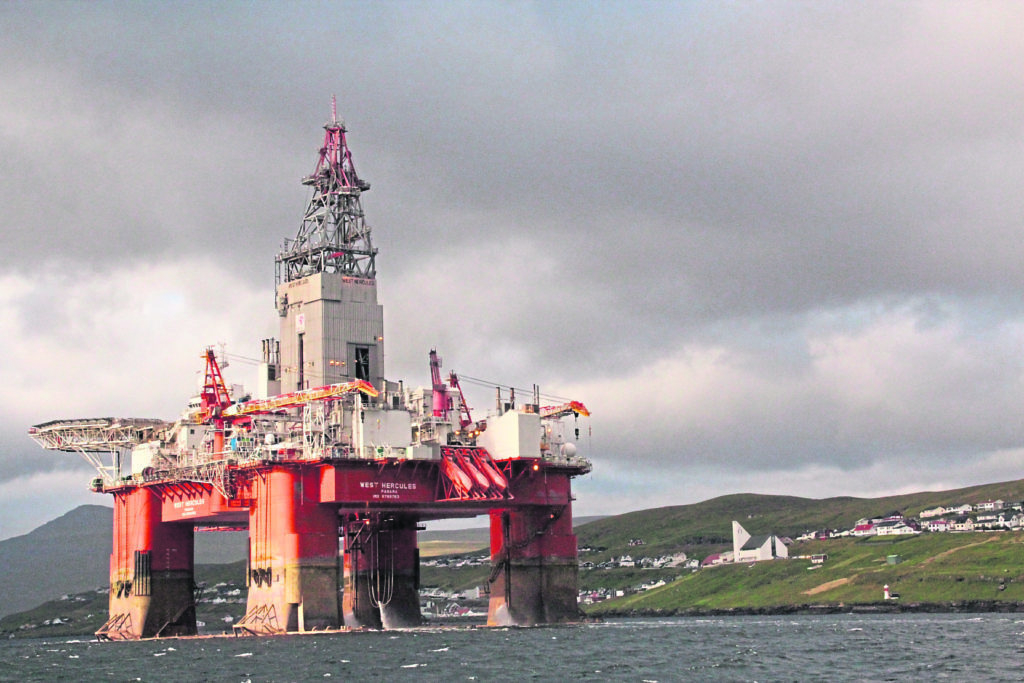
Private equity firm Blue Water Energy (BWE) is more interested in buying than selling at present as offshore activity shows signs of a “rebound”, its co-founder said.
BWE partner Graeme Sword said his colleagues were “bullish” about the oil industry’s prospects and that the potential for US production growth was limited.
Mr Sword said BWE would remain “conservative” in its approach to financing, ensuring that it can make an adequate return for investors, even when oil prices are flat or declining.
He also said the company’s investment in Aberdeen-based exploration and production company Siccar Point Energy was a perfect “blueprint” to follow.
“US shale has been a phenomenon but I don’t think that will keep going and, even if it did, we’re going to need new sources of supply beyond that,” he said.
“The only place we can see that coming from is offshore. I do think offshore activity is poised for a rebound.
“We’re pretty bullish and we are much more of a buyer than a seller of companies at the moment.
“Across our service portfolio we would be hoping to see average earnings growth this year of 20%-plus, and are expecting to see even more next year.”
Mr Sword, formerly of private equity firm 3i, is currently on the board of rapidly growing Siccar Point.
Backed by BWE, Siccar swooped for OMV’s North Sea assets for a reported £800 million late in 2016, giving it stakes in BP’s producing Schiehallion field and Chevron’s Rosebank development.
It also bought a slice of Equinor’s Mariner project that same year.
Siccar’s recent activity includes an appraisal well on Cambo, west of Shetland, immediately followed by an exploration well on Lyon using the West Hercules rig, pictured.
The company was set up by Jonathan Roger, formerly head of upstream for Centrica, in 2014.
Mr Sword said: “When Jonathan and I built the plan for Siccar I don’t think we would have envisaged we’d be sitting in such a strong position now.
“Schiehallion continues to perform strongly. We’re hoping Mariner comes on stream at the end of this year and we’re currently drilling Cambo and Lyon straight after.
“At the same time, we’re working on the submission of the development plan for Rosebank. So there’s lots of activity at Siccar.
“When Mariner comes on we’re going to be close to a 20,000-barrel a day company and, with Cambo coming on thereafter, we could pretty quickly be at 40,000. That’s quite a significant company.
“We feel in Siccar we’ve got lots of activity, lots of growth opportunities from the existing portfolio without us having to acquire anything else, and a top rate management team.
“If we were to have a Blue Water Energy blueprint for what we’re trying to do, I think that would be a pretty good example.”
BWE is also exploring ways of growing another of its north-east portfolio companies, remotely-operated vehicle supplier Rovop.
Rovop’s most recent growth spurt was announced in December when it beefed up its fleet by 50% following a deal with Tidewater in Houston.
BWE and the Business Growth Fund both stumped up funds to help deliver the deal.
Mr Sword said: “We have ambitions to continue buying more assets and build the fleet while maintaining the quality levels the team has been able to provide, then move into new geographical markets beyond Aberdeen and Houston.
“We’d like to have an on-the-ground presence in the Middle East. So there are lots of ways we can grow that business.”
In Norway, BWE and Blackstone Energy Partners agreed to invest up to £785m in new E&P player Mime Petroleum.
Mr Sword said it was important to get to the front of the queue for E&P deals because there are fewer assets on the market in Norway.
It means competition is high, which pushed up prices.
“The Norwegian continental shelf is a lot less mature than the UKCS and, therefore, people still believe there are going to be significant new fields found and brought on stream in Norway,” Mr Sword said.
“In the UK it’s more a case of harvesting what’s there and enhancing production. To stimulate activity and find new discoveries, Norway has a tax incentive scheme, which is under question at the moment, but it has been very good for Norway PLC in terms of exploration activity.
“Private equity has been quite successful in funding a lot of those businesses and viewing the Norwegian state as its partner.
“The state refunds a big proportion of companies’ exploration costs, but equally it takes a big share of tax from production profits.
“In Norway the majors have been looking at how they can exit, but we’ve not had the large wave of disposals we’ve seen in the UK.”
Mr Sword also said Italian firm Eni’s merger of its Norwegian business with Point Resources would create a model of company not seen in the UK – a major partnering with an independent oil firm.
“That’s something to keep an eye on,” he said.
Recommended for you
